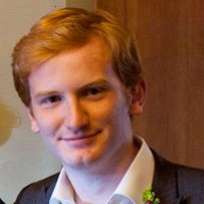The Verbier Festival Orchestra is the centrepiece of the festival from which it takes its name. Hundreds of young players hoping to start a professional orchestral career audition each year for the chance to work with big-name conductors, the likes of which this year include Charles Dutoit, Valery Gergiev, Gábor Takács-Nagy, and, for this concert, Gianandrea Noseda. A few weeks of sustained collective training is never going to create anything but a scratch orchestra, but standards are surprisingly high.
Verdi’s Requiem might not be the obvious choice of repertoire for Switzerland’s national day, but its fiery demeanour certainly suited the broiling temperatures up in the mountains and inside the arena. The Festival had assembled a very strong cast, and one with a notably Italianate flavour: soprano Maria Agresta, mezzo-soprano Daniela Barcellona, lyric bass Ildar Abdrazakov, and wundertenor Piotr Beczala. Combined with Noseda's choir from the Teatro Regio Torino this Requiem promised much, and on the whole it delivered.
One feared how well this piece would fare in the hanger-like space of the Salle des Combins, but the enviable pianissimo the VFO’s strings conjured for the hushed opening of the Introit suggested such acoustic fears would be allayed. (For the most part they were, a short reverberation time and lack of detail never becoming unacceptable, at least from my seat a third of the way back.) Noseda drove this Verdi hard throughout, whipping the Dies irae at extreme pace with his right hand, keeping the emotional arc going even at the expense of precision. This was a rather brutal affair, with moments like the repeated calls of Salva me or the final cataclysm of the Libera me quickly if heavily taken rather than lingered over. At times this paid dividends, but at others, and especially the fugal Sanctus, it further emphasised the distance of this piece from the mysteries of faith. For some Verdians, certainly, this would be effective, but Noseda’s equal desire to emphasise small details (a beginning cello line here, a repeated bass note there) tended otherwise to underscore the paucity of Verdi’s musical ideas.
That said, Noseda certainly drew the best from his four soloists. Piotr Beczala seems made for the tenor role in this piece, and sang with a piercing clarity, welcome diction, and an effortless ping, particularly in his Ingemisco. Daniela Barcellona is an under-rated mezzo-soprano, but her long experience in this part told from the outset. Able to keep a musical line and yet still endow her phrases with an improvisatory quality, she also gave her numbers a great sense of narrative, especially in a fine Liber scriptus. Ildar Abdrazakov was much more impressive here than last time I heard him – in Don Giovanni at the Metropolitan Opera – and he delivered a haunting, sotto voce Mors stupebit without struggling with its low notes. A lack of power was more than made up for by his way with words. In comparison with three larger voices, soprano Maria Agresta initially sounded slightly weak, and indeed Noseda refused to hold back the orchestral sound in the final Libera me to help her. A chanted final line, however, showed a pleading, tentative side not at all unwarranted by the text.
Choir and orchestra alike performed near their peaks. The VFO overcame a thin tone early on, providing warmth and vigour to Verdi’s orchestral writing. Sections impressed more than individuals, but the flutes shone in the Lux aeterna, and the bassoons revelled in an unusual spotlight from Noseda in the Libera me. The choir from Turin lacked diction, but they at least had that rare last ounce of Verdian atmospheric quality.


